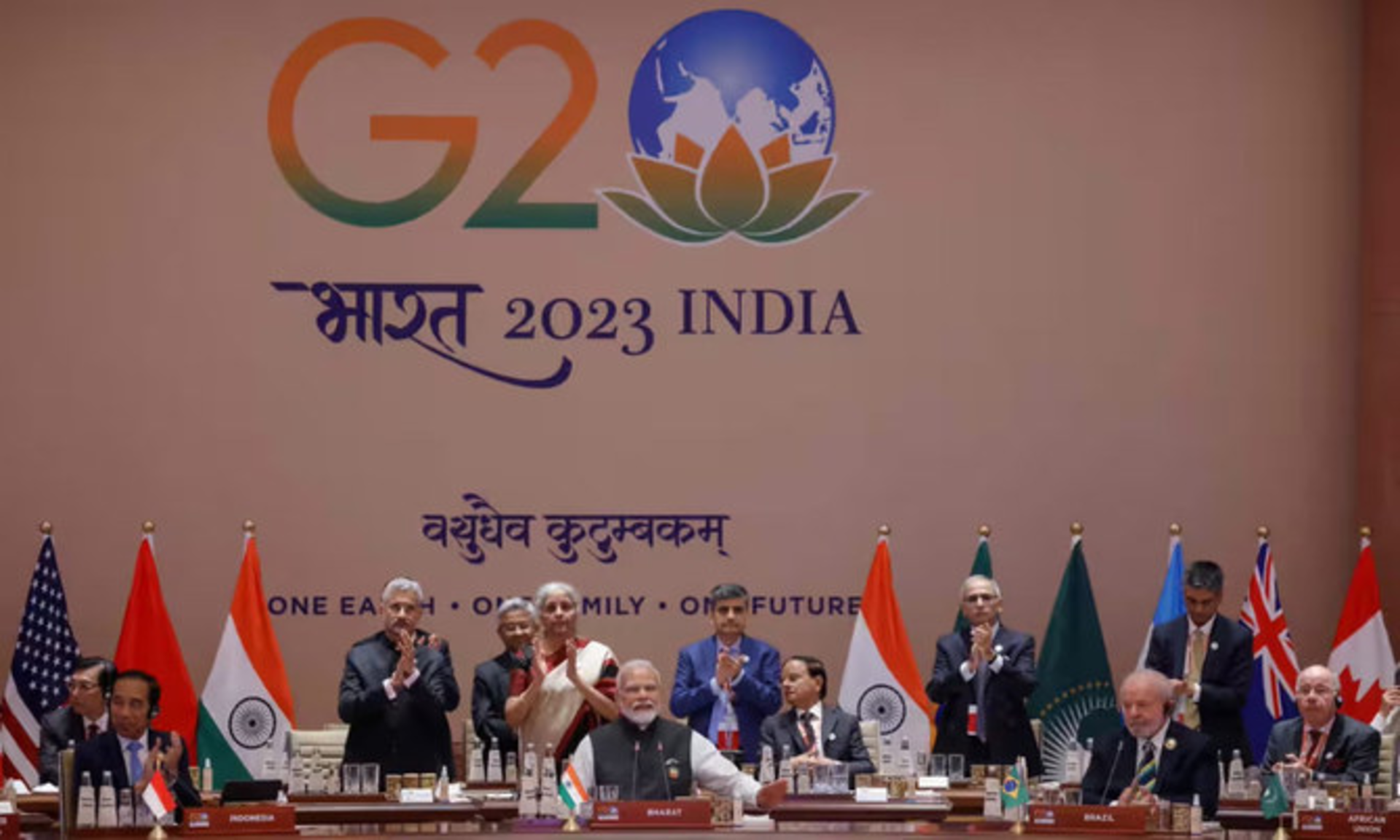New Delhi : Today marks the culmination of 365 days since India assumed the G20 Presidency, signifying a significant milestone in the global diplomatic calendar. It’s an opportune moment to reflect on the impactful initiatives undertaken during this tenure and to pave the way for future collaborative endeavors.
As India took on the G20 Chair a year ago, the global community faced a myriad of challenges, including the aftermath of the Covid-19 pandemic, environmental threats, financial instability, and development issues. Against this backdrop, India endeavored to chart a new course, shifting from a GDP-centric to a human-centric approach to progress. The focus was on fostering unity and inclusivity, prompting a fundamental reform of multilateralism.
Inclusivity and Global Dialogue: In a historic move, India ensured the inclusion of the African Union (AU) as a permanent member of the G20, integrating 55 African nations into the forum and expanding its reach to cover 80% of the global population. The groundbreaking ‘Voice of the Global South Summit’ signaled a new era of multilateralism, where the concerns of developing nations found a prominent place in international discourse.
People’s Presidency: Internally, India adopted an inclusive approach with “Jan Bhagidari” (people’s participation) events, involving 1.4 billion citizens across all states and Union Territories (UTs) as partners. This engagement aimed to redirect international attention towards broader developmental goals aligned with the G20’s mandate.
Sustainable Development Goals and Digital Innovation: At the midpoint of the 2030 Agenda, India presented the G20 2023 Action Plan to Accelerate Progress on the Sustainable Development Goals (SDGs). Notably, the focus on robust Digital Public Infrastructure (DPI) was underscored, and the creation of the Digital Public Infrastructure Repository showcased global collaboration in technological advancements.
Ambitious Green Initiatives: The G20 Declaration introduced the ‘Green Development Pact,’ outlining a comprehensive roadmap that harmonizes employment and ecosystems. Aiming for a tripling of global renewable energy capacity by 2030, coupled with initiatives like the Global Biofuels Alliance and Green Hydrogen, the G20 asserted its commitment to a cleaner, greener world.
Climate Justice and Gender Equality: Recognizing the importance of climate justice, the G20 emphasized substantial financial and technological support for developing countries, acknowledging the need for trillions of dollars in development financing. Gender equality took center stage, leading to the formation of a dedicated Working Group on the Empowerment of Women in the coming year.
Achievements and Handover: The New Delhi Declaration, embodying collaboration on key priorities, witnessed 87 outcomes and 118 adopted documents during the G20 Presidency, marking a significant achievement. As India hands over the G20 Presidency to Brazil, the conviction remains that collective efforts for people, planet, peace, and prosperity will resonate for years to come.


